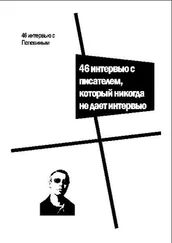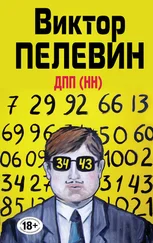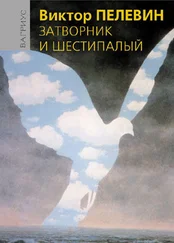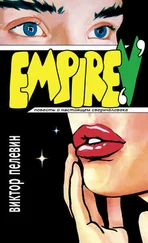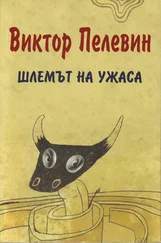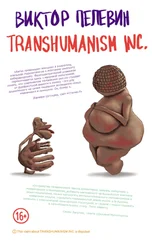Виктор Пелевин - Buddha's Little Finger
Здесь есть возможность читать онлайн «Виктор Пелевин - Buddha's Little Finger» весь текст электронной книги совершенно бесплатно (целиком полную версию без сокращений). В некоторых случаях можно слушать аудио, скачать через торрент в формате fb2 и присутствует краткое содержание. Жанр: Современная проза, на английском языке. Описание произведения, (предисловие) а так же отзывы посетителей доступны на портале библиотеки ЛибКат.
- Название:Buddha's Little Finger
- Автор:
- Жанр:
- Год:неизвестен
- ISBN:нет данных
- Рейтинг книги:5 / 5. Голосов: 1
-
Избранное:Добавить в избранное
- Отзывы:
-
Ваша оценка:
- 100
- 1
- 2
- 3
- 4
- 5
Buddha's Little Finger: краткое содержание, описание и аннотация
Предлагаем к чтению аннотацию, описание, краткое содержание или предисловие (зависит от того, что написал сам автор книги «Buddha's Little Finger»). Если вы не нашли необходимую информацию о книге — напишите в комментариях, мы постараемся отыскать её.
Buddha's Little Finger — читать онлайн бесплатно полную книгу (весь текст) целиком
Ниже представлен текст книги, разбитый по страницам. Система сохранения места последней прочитанной страницы, позволяет с удобством читать онлайн бесплатно книгу «Buddha's Little Finger», без необходимости каждый раз заново искать на чём Вы остановились. Поставьте закладку, и сможете в любой момент перейти на страницу, на которой закончили чтение.
Интервал:
Закладка:
‘Very well,’ said Kotovsky, ‘I agree. As it happens, I have a set of chemical scales in my luggage…’
‘Measure it by eye,’ I said, ‘I came by it very easily.’
Extracting a silver cigarette case from the pocket of his dressing-gown, he emptied out the papyrosas from it and then took out a penknife and used its blade to transfer part of the powder to the case.
‘Won’t it spill?’ I asked.
‘Don’t worry, I got this cigarette case in Odessa. It’s special. The trotters are yours.’
‘Thank you.’
‘Shall we drink to our deal?’
‘Gladly,’ I said, raising my glass.
Kotovsky drained his champagne, put the cigarette case in his pocket and picked up the candlestick.
‘Well, thank you for the conversation. Please forgive me, I beg you, for intruding during the night.’
‘Good night to you. Would you permit me to ask you one question? Since you have already mentioned it yourself -what is the inner drama which is eased so well by cocaine?’
‘In the face of the drama of Russia it dwindles to nothing,’ said Kotovsky. He nodded curtly in military fashion and left the room.
I tried for some time to get to sleep, but was unsuccessful. At first I thought about Kotovsky - I must admit that he had made a rather pleasant impression on me, there was a sense of style to him. Then my thoughts turned back to Chapaev. I began thinking about his ‘nowhere’ and our conversation. At first glance it seemed far from complicated: he had asked me to answer the question, whether I exist because of the world, or the world exists because of me. Of course, it all amounted to nothing more than banal dialectics, but there was a rather frightening aspect to it, which he had pointed out in a masterly fashion with his questions, at first sight so idiotic, about the place where it all happens. If the entire world exists within me, then where do I exist? And if I exist within this world, then where, in what place in the world, is my consciousness located? One might say, I thought, that on the one hand the world exists in me and on the other I exist in the world, and these are simply the poles of a single semantic magnet, but the tricky thing was that there was no peg on which to hang this magnet, this dialectical dyad.
There was nowhere for it to exist!
Because its existence required an individual in whose consciousness it could come into being. And that individual had nowhere to exist, because any ‘where’ could only arise in a сonsciousness for which there was simply no place other than one created by itself… But then where was it before it created this place for itself? If within itself, then where?
I suddenly felt afraid of being alone. Throwing my military jacket over my shoulders, I went out into the corridor, saw the blue radiance of the moon shining through the window on to the staircase and descended to the hallway.
The horseless carriage was standing near the door. I walked round it a couple of times, admiring its clean lines -the moonlight seemed to lend it additional charm. A horse snorted somewhere close to me. I turned round and saw Chapaev standing with a curry-comb in his hand, brushing the animal’s mane. I walked over and stood beside him; he looked at me. I wonder, I thought, what he will say if I ask him where this ‘nowhere’ of his is located. He will have to define the word in terms of itself, and will find his position in the conversation no better than my own.
‘Can’t sleep?’ asked Chapaev.
‘Yes,’ I said. ‘Something is bothering me.’
‘What is it, never seen the void before?’
I realized that by the word ‘void’ he meant precisely the ‘nowhere’ which I had become aware of only a few minutes earlier.
‘No,’ I answered. ‘Never.’
Then just what have you been seeing, Petka?’ Chapaev asked gently.
‘Let’s change the subject,’ I said. ‘Where are my trotters?’
‘In the stable,’ said Chapaev. ‘And just how long have they been yours and not Kotovsky’s?’
‘About a quarter of an hour now.’
Chapaev laughed.
‘You be careful with Grigory,’ he said. ‘He’s not as straightforward as he seems,’
‘I have already realized that,’ I replied. ‘You know, Vasily Ivanovich, I just cannot get your words out of my head. You certainly know how to drive a person into a corner.’
‘That’s right,’ said Chapaev, forcing the curry-comb through the tangles of horsehair, ‘I do. And then I give them a good burst from the machine-gun…’
‘But I think,’ I said, ‘that I can do it too.’
‘Try it.’
‘Very well,’ I said. ‘I shall also ask a sequence of questions about place.’
‘Ask away, ask away,’ muttered Chapaev.
‘Let us start at the beginning. There you stand combing a horse. But where is this horse?’
Chapaev looked at me in amazement. ‘Petka, have you gone completely off your chump?’
‘I beg your pardon?’
‘It’s right here in front of your face.’
I said nothing for several seconds. I had not been prepared for such a turn of events. Chapaev shook his head doubtfully.
‘You know, Petka,’ he said, ‘I reckon you’d better get off to bed.’
I smiled stupidly and wandered back towards the house. Somehow managing to reach my bed, I collapsed on to it and began tumbling down into the next nightmare; I had sensed its inevitable onset as I was still climbing the stairs.
I did not have to wait for long. I began dreaming of a blue-eyed, blond-haired man tethered with loops to a strange-looking seat like a dentist’s chair. In the dream I knew for certain that his name was Serdyuk, and that what was happening to him now was soon going to happen to me. Coloured wires connected Serdyuk’s arms to a menacing-looking dynamolike machine standing on the floor; I was sufficiently conscious to guess that this mechanism had been added to the picture by my own mind. The handle of the machine was being turned by two men in white coats who were leaning over it. At first they turned the handle slowly, and the man in I he armchair merely trembled and bit his lip, but gradually their movements grew faster, and one after another huge shuddering movements began sweeping in waves through I he bound man’s body. At last he could no longer restrain himself from crying out.
‘Stop it!’ he said.
But his tormentors only worked even faster.
‘Stop the dynamo,’ he roared as loudly as he could, ‘turn off the dynamo! The dynamo! The dynamo! The DY-NA-MO!!!’
6
‘Next station - «Dynamo».’
The voice from the loudspeaker brought Serdyuk to attention.
The passenger sitting opposite, a weird-looking type with a round, pockmarked face, dressed in a dirty padded kaftan and a turban streaked with splashes of green paint, caught Serdyuk’s senseless glance, touched two fingers to his turban and said loudly:
‘Heil Hitler!’
‘Hitler heil,’ Serdyuk replied politely and turned his gaze away.
He couldn’t figure out who the man was or what he was doing riding in the metro, when an ugly mug like that should have been driving around in at least a BMW.
Serdyuk sighed, squinted down to his right and began reading the book which lay open on the knees of his neighbour. It was a thin, tattered brochure wrapped in newsprint, on which the words ‘Japanese Militarism’ had been scrawled in ballpoint pen. The brochure was obviously some kind of semi-secret Soviet textbook: the paper was yellow with age and the typeface was peculiar, with a text made up of large numbers of Japanese words set in italics.
‘The concept of social duty,’ read Serdyuk, ‘is interwoven for the Japanese with a sense of natural human duty in a way that generates the emotional energy of high drama. This duty is expressed in the concepts on and giri (derived from the hieroglyphs meaning «to prick» and «to weigh down» respectively) which are still very far from being historical curiosities. On is the «debt of gratitude» owed by a child to its parents, a vassal to his suzerain, a citizen to the state. Giri is «obligation and responsibility», and requires that each individual act in accordance with his station and position in society. It is also obligation in relation to one’s own self, the preservation of the honour and dignity of one’s own person, of one’s name. Duty consists in being prepared to sacrifice oneself in the name of on and giri, which define a specific code of social, professional and human behaviour.’
Читать дальшеИнтервал:
Закладка:
Похожие книги на «Buddha's Little Finger»
Представляем Вашему вниманию похожие книги на «Buddha's Little Finger» списком для выбора. Мы отобрали схожую по названию и смыслу литературу в надежде предоставить читателям больше вариантов отыскать новые, интересные, ещё непрочитанные произведения.
Обсуждение, отзывы о книге «Buddha's Little Finger» и просто собственные мнения читателей. Оставьте ваши комментарии, напишите, что Вы думаете о произведении, его смысле или главных героях. Укажите что конкретно понравилось, а что нет, и почему Вы так считаете.

